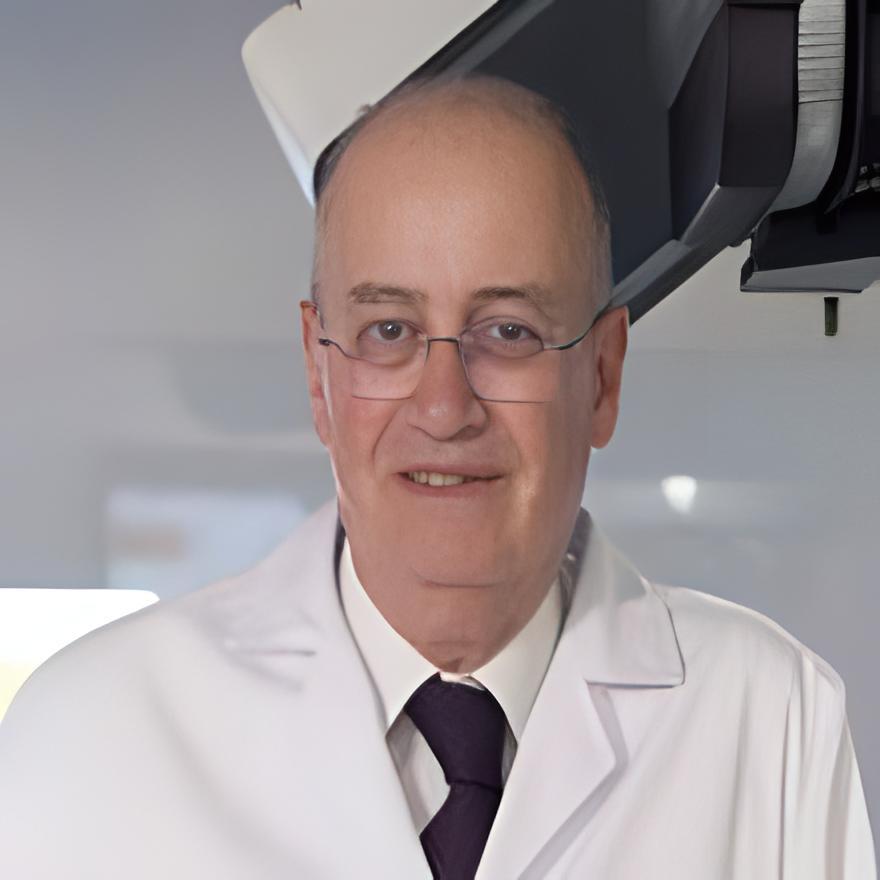Proton Therapy for Prostate Cancer Treatment

Proton therapy has a 5-year survival rate of 95% or higher in prostate cancer patients.
Proton therapy has been used on more than 170,000 people around the world.
The success rate of proton therapy for prostate cancer varies from 76-99%.
More than 1000 new articles appeared due to the clinical studies last year.
 What is proton therapy?
What is proton therapy?
Proton therapy is a powerful radiation therapy that treats cancer with protons instead of x-rays. X-rays are used in radiation therapy, which has been around for a long time.
Proton therapy, on the other hand, is a new kind that uses the energy of protons and positively charged particles. Because these particles are so powerful, they deliver a precise radiation dose to the tumor center and kill cancer cells.
Proton therapy takes place outside. From special equipment outside the body, energy is sent painlessly, precisely, and effectively. It can lower the chance of side effects and make the treatment more likely to work. Proton therapy is often used to treat cancers of the brain, breast, prostate, and other organs. It works exceptionally well on tumors that are close to essential body parts. It can be an excellent way to treat people of all ages.
 How does it work for prostate cancer?
How does it work for prostate cancer?
Proton therapy works by sending a precise amount of radiation to the tumor with the help of a beam of protons. When protons enter the body, they leave their energy behind. Radiologists can control the amount of energy left behind. It lets the doctors give a high dose of radiation to the tumor.
Proton therapy is a treatment for prostate cancer in which a focused beam of protons is used to kill cancer cells. A doctor can use treatment to send high doses of radiation directly to cancer cells without hurting the tissues around the prostate, which don't need treatment.
 An in-depth explanation of the treatment
An in-depth explanation of the treatment
 A device called a synchrotron or cyclotron speeds up protons. This energy causes the protons to move to the desired depth in the body. The charged particles give tumor cells a dose of radiation that is just right. When this type of therapy is used outside of the tumor, the quantity of radiation is lower. Magnets guide the proton beam to a specific spot in the body, where it hits the sick cells as hard as possible without hurting the nearby healthy organs.
A device called a synchrotron or cyclotron speeds up protons. This energy causes the protons to move to the desired depth in the body. The charged particles give tumor cells a dose of radiation that is just right. When this type of therapy is used outside of the tumor, the quantity of radiation is lower. Magnets guide the proton beam to a specific spot in the body, where it hits the sick cells as hard as possible without hurting the nearby healthy organs.
Proton radiation therapy is done in a particular room away from the hospital. The patient is put on a specific treatment table with special pillows and limiters that help the doctor figure out the best way for the patient to be positioned. A gantry machine sends the proton beam to the tumor. The gantry is a large, circular machine that can move around the patient to send the proton beam from different angles. During treatment, the patient may be put in different positions to ensure that the proton beam goes straight to the tumor. Most proton therapies are done outside of a hospital and take place over a few weeks.
 Who is a candidate for proton therapy for prostate cancer?
Who is a candidate for proton therapy for prostate cancer?
Most men who are candidates for other forms of radiotherapy for prostate cancer, such as brachytherapy, IMRT, or SBRT, will also be eligible for proton therapy. These males have characteristics such as:
- Recent diagnosis of cancer in the prostate,
- Cancer of the prostate that comes back chemically,
- Lymph node-positive prostate cancer,
- Carcinoma of the prostate that needs adjuvant treatment following surgery.
Those men who have prostate cancer:
- in an early stage,
- that has advanced locally,
- and already undergone radiation therapy,
- and are interested in experiencing it once more; all may be candidates for proton therapy.
Prostate cancer patients who have already undergone a prostatectomy, in which the prostate or a portion of it is surgically removed, may still benefit from proton treatment. It is because proton therapy targets cancer cells differently, entirely, and effectively.
What clinics offer proton therapy for prostate cancer?
 Proton therapy for prostate cancer: pros and cons
Proton therapy for prostate cancer: pros and cons
Pros of proton therapy for prostate cancer include:
- Precision: Proton therapy is exact and targets cancer cells with minimal exposure to surrounding healthy tissue. It may reduce the risk of side effects and complications and give more control over the tumor for radiation that is more accurate targeting.
- Fewer side effects: Because proton therapy targets cancer cells more accurately, it may cause fewer side effects than conventional radiation therapy.
- Sparing of organs: Proton therapy may be less likely to damage healthy organs and tissues near the prostate, such as the bladder and rectum.
- Reduced risk of long-term side effects: Some studies suggest that proton therapy for prostate cancer may have a lower risk of long-term side effects, such as incontinence and impotence, than traditional radiation therapy.
- More comfort because the treatment can be done in an outpatient setting, and the patient will return home on the same day. There is no need for a recovery period; the method is not invasive and doesn't hurt.
Suppose you are interested in how long proton therapy is for prostate cancer. In that case, it can last for different amounts of time depending on several things, such as the stage and grade of cancer, the patient's overall health, and the treatment plan suggested by the medical team.
Most of the time, proton therapy is given five days a week, daily, for a few weeks. The total number of treatments needed can be anywhere from five to nine weeks, each taking about 30 to 60 minutes.
Concerning the side effects, they may include the following:
- Urinary incontinence: Some men may experience difficulty controlling their bladder after proton therapy. It can range from mild leakage to complete incontinence.
- Erectile dysfunction: Proton therapy may cause problems achieving and maintaining an erection.
- Bowel problems: Some men may experience diarrhea, constipation, or other bowel problems after proton therapy.
- Fatigue: Some men may feel tired or weak after proton therapy; the effect is usually mild and disappears quickly.
- Second cancers: There is a minimal risk that proton therapy may increase the risk of developing second cancer.
It is essential to say that not all men will experience these side effects, and the severity of the side effects can vary from person to person.
Cons of proton therapy for prostate cancer include:
Cost: Proton treatment can be more expensive than traditional radiation therapy. However, patients who get proton therapy, on the other hand, are less likely to have costly side effects. And we can find the cost of proton therapy for prostate cancer according to the client’s budget.
Low availability: Proton therapy is not available at all cancer treatment centers, so it may not be an option for everyone. At the same time, at AiroMedical, we are ready to find both clinics and doctors with such specialties.
Limited research: There is little research on the long-term effects of proton therapy for prostate cancer compared to conventional radiation therapy. However, there are promising treatment results, and clinical research is rapidly increasing.
Who can help to perform proton therapy?
 The findings and statistical analysis
The findings and statistical analysis
Proton radiation therapy is considered one of the most advanced ways to treat illness in the 21st century.
About 40% of cancers in the developed parts of the world, and more than 60% in the U.S., need radiation therapy alone or other treatments like prostatectomy or chemotherapy. The most important thing has always been to keep rays from hurting healthy tissues as much as possible. Proton therapy has a real advantage over other types of radiation therapy.
As more people get this kind of treatment, the medical community learns more and more about proton radiation therapy. In the last year, more than 1,000 articles with the results of clinical trials have been published.
In a Green Journal article by MD Anderson, five-year clinical trials of patients receiving proton therapy demonstrate that life expectancy has increased by 41%, biochemical markers have improved by 87%, and the risk of cancer returning has decreased by 92%

Compared to the results of proton therapy vs. surgery for prostate cancer, radiation or surgery can treat prostate cancer. Both are effective, and cancer won't spread with either treatment.
Both therapies cause bladder, bowel, or erection difficulties. Radiation therapy increases bowel issues. Surgery more likely causes urine leakage and erection problems.
Having the prostate removed may help get rid of cancer. For some guys, avoiding radiation is more vital than "getting cancer out." Radiation therapy can treat cancer without an open operation. Some men want to prolong their sexual function. In that case, radiation may be preferable to surgery. One may be better depending on the life expectancy, health issues, and feelings about each treatment. Qualified doctors can help to choose. And we can find them.
 How can we help?
How can we help?
Proton therapy is a new way to treat cancer of the prostate. But because the method is unique and complex, it is now used to treat prostate cancer in limited hospitals in Europe, Turkey, and Israel.
AiroMedical gives people access to the newest innovations. The company aims to provide patients with the best and most up-to-date medical care, even in difficult situations.
Our doctors are constantly learning about the new ways to treat cancer that come out every year. We tell the patient everything there is to know about his disease and how to treat it, including new ones. We care about getting rid of cancer and ensuring the person's quality of life during and after treatment.
Due to how well it works, proton therapy gives hope to people with prostate cancer.
The AiroMedical team sets up therapy in the world's best hospitals. We estimate proton therapies for prostate cancer reviews and bring in the best doctors based on how well the treatment works, the risk of side effects, the cost, and other factors. We can find and organize the whole treatment process and follow-up care.
We are ready to help. Contact us.
What is proton therapy for prostate cancer locations?
References:
- American Society of Clinical Oncology: Proton Therapy
- University of Florida Health Proton Therapy Institute: Proton Therapy for Prostate Cancer
- Loma Linda University Health: More than 10,000 Prostate Patients Treated with Proton Therapy at LLUMC Proton Treatment Center
- National Library of Medicine: Comparative Analysis of 5-Year Clinical Outcomes and Patterns of Failure of Proton Beam Therapy Versus Intensity Modulated Radiation therapy for Prostate Cancer in the Postoperative Setting
- IBA group of companies: Clinical Publication Highlights











